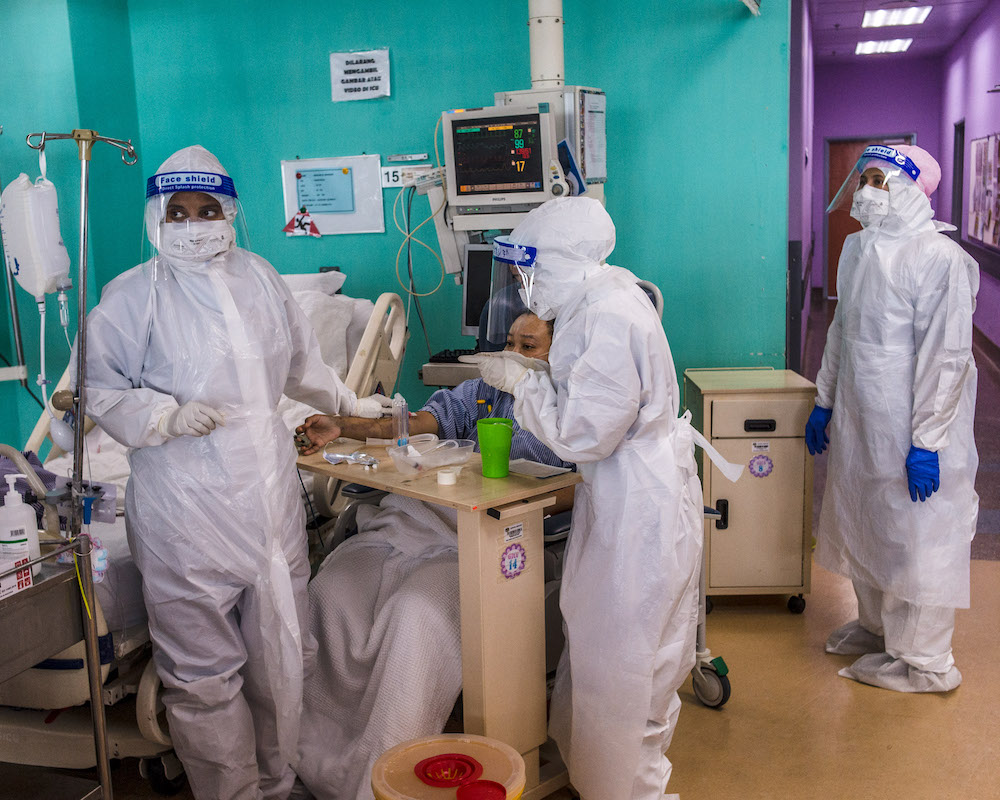Health workers wearing PPE perform routine procedures on Covid-19 patients who have recovered and are not intubated in the ICU at Serdang Hospital. — Picture by Shafwan Zaidon
KUALA LUMPUR, Nov 23 — The public and private sectors need a shared vision and common objectives so that they can work together to address the disparity in the Malaysian healthcare system and have more equitable services.
The group chief executive officer of TMC Life Sciences (TMCLS) Wan Nadiah Wan Abdullah Yaakob said that healthcare is an industry where the resources are constrained, hence it requires a lot of long term planning.
“Disparity in the public and private healthcare system in Malaysia for the long term is not sustainable.
“While a lot of investments went into government hospitals, we also see more and more of the private sector playing its role, especially in primary care.
“During the peak of the pandemic in the Klang Valley, the private sector had also played a pivotal role in some of the services that were required to manage pandemic,” she said in the panel session of the International Social Wellbeing Conference (ISWC) 2021, organised by the Employees’ Provident Fund today.
She noted that the Covid-19 pandemic has been an eye-opener when it comes to handling pandemics and that the pandemic is an opportunity to review and take things forward.
She highlighted that although 70 per cent of primary care services are from the private sector, almost no information had been collected from this segment during the pandemic and this demonstrated a gap that needs to be looked into.
Moving forward, Wan Nadiah said there is a need to improve the healthcare mechanism with more in-depth collaboration between the government and private sectors.
“They need to have more communication and better platforms aside from just regulation and enforcement in order to work together to further develop the industry.
“The regulators and policymakers need to understand the ways and the cost structure of how the private healthcare industry in Malaysia and other countries are functioning.
“There is already a clear gap in terms of measurement of data with information that is available to policymakers on private healthcare providers and this is definitely something that needs to be looked into in order to have a more fruitful way of working together moving forward,” she said.
Healthcare financing needs to be reformed, she said, as it is an “either-or” situation whereby you are either fully subsidised by the government or you are fully subsidised by yourself.
“When there is no middle ground, there is where the issue of sustainability happens. In fact, the subsidy and payment should be following the patient’s outcome and not determined by the type of the facilities they are accessing,” she suggested.
Regulation of health insurance under Bank Negara also needs to be improved, she noted.
“As the predominant financial regulator, they are not looking at healthcare questions. To reform healthcare financing, healthcare insurance companies need to be regulated differently from general insurance companies. It is a very important question for policymakers,” she said. — Bernama

